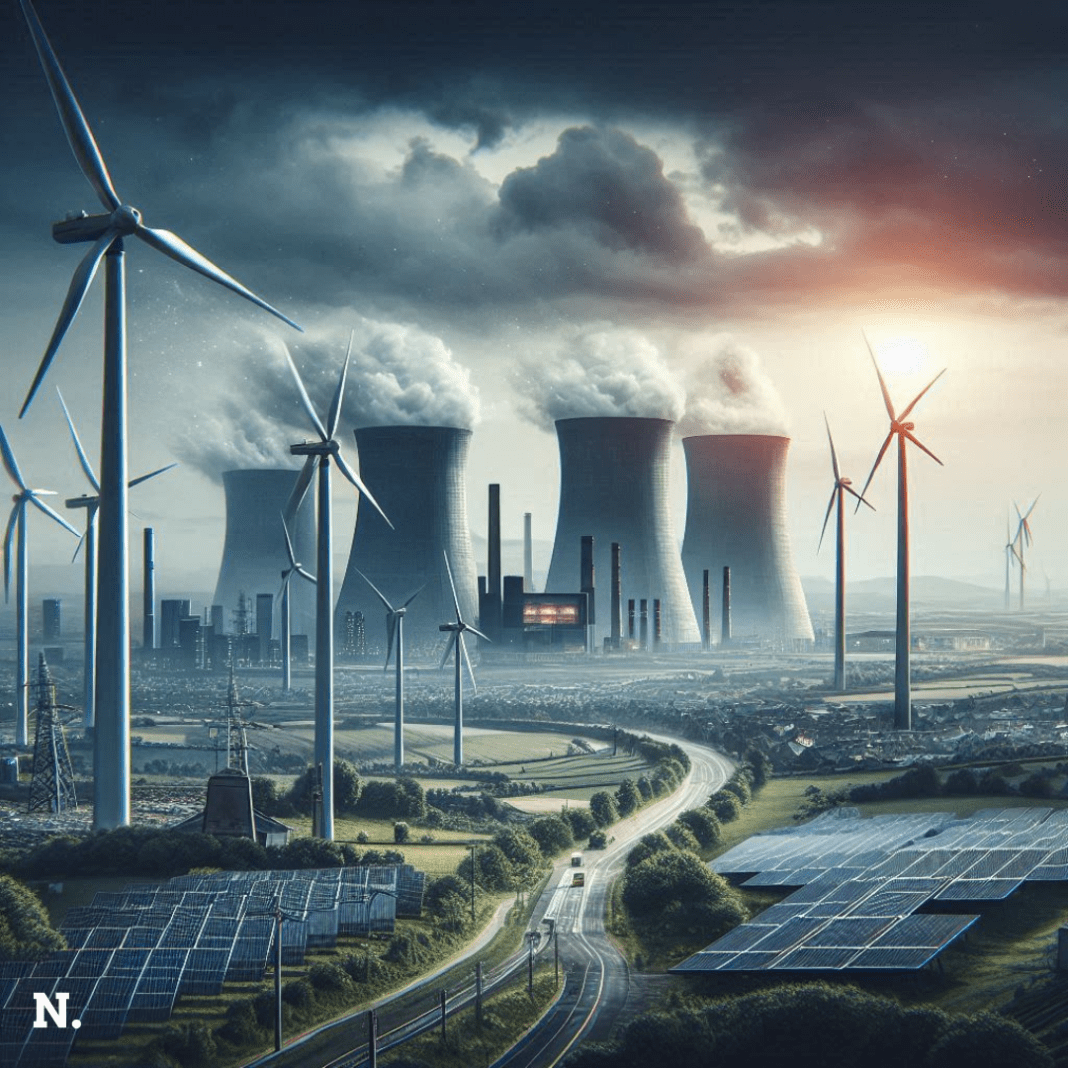As Britain steps into a new chapter in its energy journey, the closure of its last coal power station at the end of September marks the end of an era. For a country that was at the heart of the Industrial Revolution and powered its global empire with coal, this moment is highly symbolic. This change signals a commitment to a future powered by cleaner energy, but it also raises a critical question: Can Britain meet its energy demands and still achieve its climate goals?
The End of Coal and the Energy Security Puzzle
With the closure of the coal power station and the halting of plans for a new coalmine in Cumbria, it’s clear that coal is no longer part of Britain’s energy future. Environmental groups have welcomed these decisions, calling them a major step towards fighting climate change. The government, too, has set ambitious goals for the future. By 2030, Britain aims to double its onshore wind power, triple its solar energy, and increase offshore wind power fourfold.
However, these goals will take time and significant investment to become a reality. In the meantime, Britain faces a tough energy situation. More than three-quarters of the country’s energy still comes from oil and gas, and it will be challenging to reduce that reliance quickly. Without coal, Britain must find ways to meet its energy needs, keep prices low, and stay on track with its green energy transition.
Currently, about 15% of Britain’s electricity comes from imports, mostly from countries in Western Europe. This figure has jumped by 50% in recent years, raising concerns about the country’s energy security. Relying heavily on imported electricity makes Britain vulnerable to global energy market changes. With the war in Ukraine disrupting global oil and gas supplies, this reliance becomes even riskier.
Reliance of Britain on Oil and Gas Imports
In recent years, Britain has turned to other countries to help fill the gap left by its own shrinking energy production. Norway and the United States have become important suppliers of oil and gas after Britain imposed sanctions on Russia’s energy exports. But this tactic has drawbacks of its own.
Norway’s gas supplies are not only expensive but also limited in quantity. Meanwhile, President Biden’s recent decision to pause liquefied natural gas (LNG) exports could affect Britain’s energy stability. Even though these countries are allies, relying on foreign powers always comes with risks. When global energy markets are unstable, the countries that export energy might prioritize their own needs, leaving others in a difficult position.
Britain’s situation is not unique. Germany, for example, relied even more heavily on Russian gas than Britain did. Since the war in Ukraine, Germany has been scrambling to find new energy sources. Its industrial output is expected to drop by 7% in 2024 due to energy shortages, even though the country has made big strides in using renewable energy.
Germany’s Solution: A Gulf Partnership
Germany has realized that renewable energy alone will not be enough to power its economy, especially its heavy industries like automotive and electronics. To secure its energy future, Germany recently formed a partnership with the UAE’s state-owned energy company, Adnoc. This $16 billion deal is aimed at supporting Germany’s industrial sector, which is crucial to its economy.
The UAE has promised to invest $150 billion in energy and industry by 2027. Germany’s new partnership means it will not only benefit from financial investments but also gain access to the UAE’s oil resources. This is vital for Germany, as a third of its energy still comes from oil. By working with the UAE, Germany can reduce its dependence on Russian gas and secure a more stable energy supply.
Britain could consider following Germany’s lead and exploring partnerships with Gulf countries to secure its own energy supplies. However, such partnerships come with risks. The Gulf region is far from Britain, and ongoing conflicts in the Middle East could threaten energy supplies. There is also the concern that increasing reliance on fossil fuels from the Gulf could slow Britain’s progress towards its renewable energy goals.
Still, it is important to note that the UAE is already preparing for the future of energy. Adnoc has pledged to reach net-zero emissions by 2045, and it is investing heavily in renewable energy projects. Recently, the UAE signed a $3 billion deal to support decarbonization, showing that it understands the need for a balanced approach to energy.
As Britain moves forward without coal, it must find ways to secure energy that are both reliable and sustainable. Germany’s partnership with the UAE may offer one potential path, combining fossil fuel security with a commitment to future-proofing energy sources.
By looking at innovative partnerships like these, Britain can navigate the challenges of its energy transition while keeping its economy strong. It is a delicate balance, but one that the country must strike as it moves away from coal and towards a more secure and green energy future.





